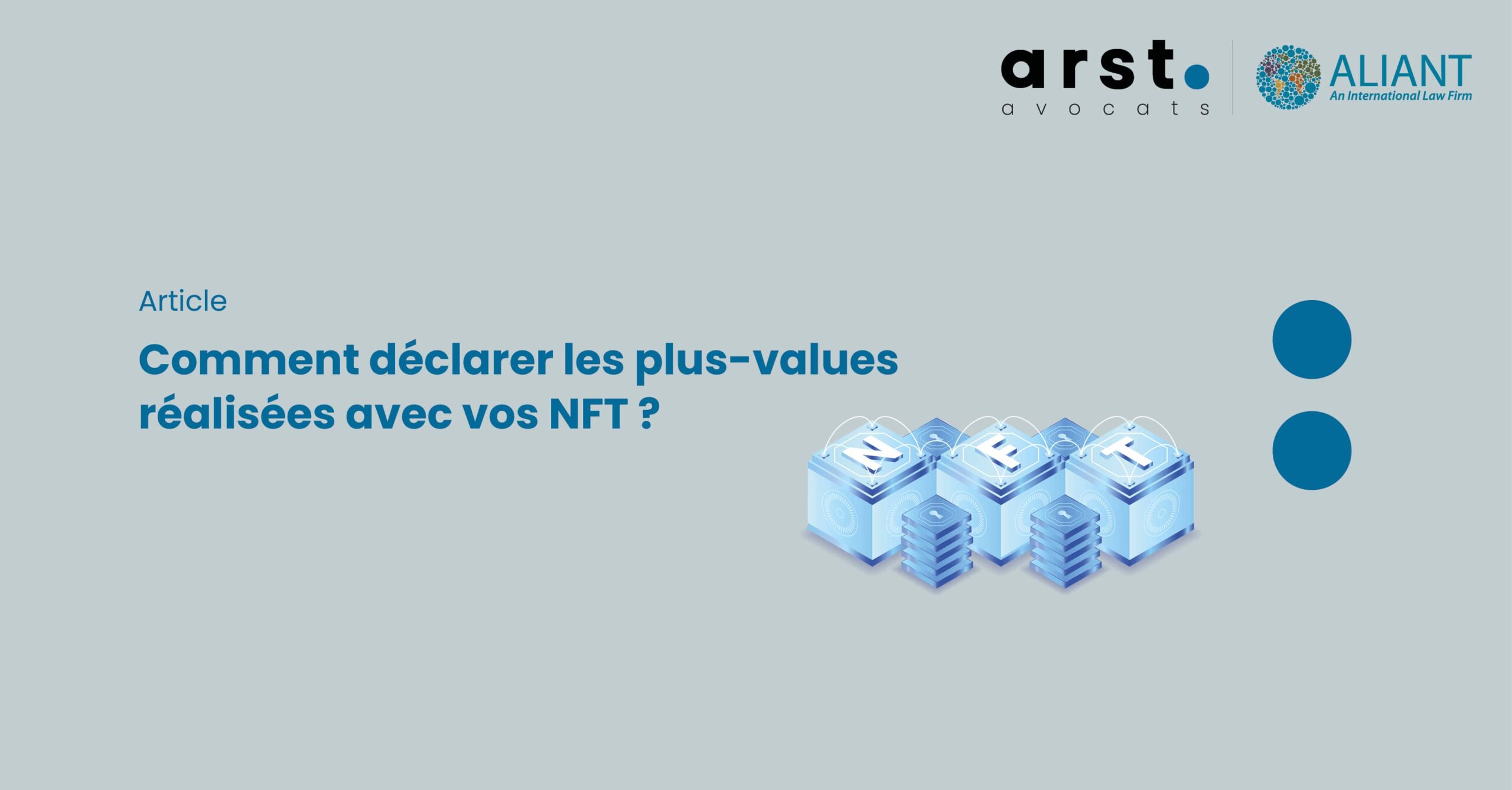
|
Important dates – tax return season |
|
| Your place of residence | Deadline for filing your tax return |
| Departments No. 1 to 19 and non-residents | Tuesday, May 24, 2022 at 11:59 PM |
| Departments No. 20 to 54 | Tuesday, May 31, 2022 at 11:59 PM |
| Departments No. 55 to 974/976 | Wednesday, June 8, 2022 at 11:59 PM |
For some, the question arises of the taxation of NFTs.
A quick reminder of the definition of NFTs
NFT stands for "Non-Fungible Tokens." As their name suggests, they are crypto-assets that represent something non-fungible. In other words, each NFT is unique (a bit like a work of art). This is one of the key differences between NFTs and cryptocurrencies. They are both crypto-assets, but cryptocurrencies are fungible, meaning that two cryptocurrencies can be exchanged (much like regular currency).
The NFT Tax Regime
Legal uncertainty
Currently, the texts seem to want to apply the same tax regime to NFTs as that applicable to cryptocurrencies.
However, leading authors and specialists in the field believe there is legal uncertainty surrounding this issue. According to them, tax regimes
In certain cases, they recommend subjecting the NFT to the tax regime of its underlying asset .
This solution to uncertainty has one advantage: a still rather broad scope for action (and interpretation). There is, a priori, no right or wrong answer.
However, there is also a drawback: legal insecurity and uncertainty regarding the declaration and taxation of these assets.
In this case, you would need to analyze the nature of the underlying asset of your NFT(s) and try to determine the applicable tax regime. The different applicable legal regimes are as follows:
The general tax regime applicable to capital gains from the sale of movable property (36.2%, after application of a 5% allowance per year of ownership),
The tax regime applicable to capital gains from the sale of works of art (6%),
The regime applicable to capital gains from the sale of securities (30%, without reduction for holding period).
Our advice
If, in 2021, you made (occasionally) a capital gain from the sale of NFTs, we generally advise you to declare them following the rules applicable to cryptocurrencies.
Under this regime, your capital gain is taxed at a rate of 30% (12.8% income tax and 17.2% social security contributions). You cannot opt for the progressive tax scale.
If the total amount of these capital gains does not exceed €305, the capital gain is exempt.
If you have incurred a capital loss, be aware that it cannot be carried forward to subsequent years, nor offset against other capital gains from disposals.
In practice, if you realized capital gains from the sale of digital assets in 2021, you must:
File a declaration no. 2086 ;
File a declaration form no. 3916 bis (if the account or wallet is opened abroad);
File a declaration no. 2042 C.
Furthermore, given the legal uncertainty surrounding this matter, we advise you to take special precautions in how you declare these earnings.
If you have any questions, please do not hesitate to contact us: we are available to answer them.

Dirk Andreae-Nehlsen
author
associate lawyer
Repetition of old-age benefits obtained through fraud
Court of Cassation, Plenary Assembly, May 17...
Two-year statute of limitations: the Court of Cassation finally sets limits in favor of insurers
Insurers' obligation to inform the parties of the causes of interruption of the two-year limitation period does not require mentioning the entirety of Article 2243 of the Civil Code, according to which the interruption does not occur when the claimant withdraws, leaves...
Interview with Romain Picard, young partner at the law firm Arst Avocats specializing in Corporate / M&A
Today we welcome Romain Picard, a young partner at the firm Arst Avocats, who explains the reasons that led him to join the firm and tells us about his plans for developing the Corporate/M&A practice within the firm...
Repetition of old-age benefits obtained through fraud
Court of Cassation, Plenary Assembly, May 17...
Two-year statute of limitations: the Court of Cassation finally sets limits in favor of insurers
Insurers' obligation to inform the parties of the causes of interruption of the two-year limitation period does not require mentioning the entirety of Article 2243 of the Civil Code, according to which the interruption does not occur when the claimant withdraws, leaves...
Interview with Romain Picard, young partner at the law firm Arst Avocats specializing in Corporate / M&A
Today we welcome Romain Picard, a young partner at the firm Arst Avocats, who explains the reasons that led him to join the firm and tells us about his plans for developing the Corporate/M&A practice within the firm...